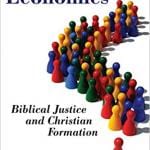I find it hard to deny that Paul held to some species of supersessionism, not a replacement of Israel, but certainly a redefinition of Israel based on the coming of the Messiah and the inclusion of the Gentiles. Of course, Romans 9-11 is really the key passage one has to wrestle with here.
Whereas some Jewish groups conceived of themselves as an elect within Israel, Jews superseding other Jews in a salvific-eschatological narrative, Paul’s discourse is different. For Paul, the advent of Christ has created a fissure within ethnic Israel between those who believe and those who do not, between an Israel according to the flesh and an Israel according to the promise (Rom 9:6-21). For the promissory Israel, they comprise of a remnant of Christ-believing Jews (Rom 9:27-29; 11:1-5) and Gentile Christ-believers who are grafted into promissory Israel’s election by faith (Rom 9:22-26; 10:4-13; 11:20, 24). For Paul, “Israel” is a prestige label for the superordinate group comprised of Christ-believing Jews and Gentiles, who can be described elsewhere as an “inward Jew” (Rom 2:29), “children of the living God” (Rom 9:26), the “circumcision” (Phil 3:3), and the “Israel of God” (Gal 6:16). This leaves ethnic Israel in an ambiguous space. On the one hand, they are objects of “wrath” (Rom 9:22), because they “stumbled,” (Rom 9:32-33; 11:11-12), they committed a “transgression” (Rom 11:11-12), there are “defeated” (Rom 11:12), they have become “a disobedient and obstinate people” (Rom 10:21; 11:30-31), they have been “hardened” (Rom 9:18; 11:7, 25), experienced “rejection” (Rom 11:15), were “broken off because of unbelief” (Rom 11:20), and become “enemies of God” (Rom 11:28). But on the other hand, Paul simultaneously affirms too that God has “not rejected his people” (Rom 11:1-2), Israel is not “beyond recovery” (Rom 11:11), God’s love for Israel immutable (Rom 11:28), and Israel’s election is irrevocable (Rom 11:29).
The tension here is real and Paul intensifies it further. He does that first by ruling out point black a pure replacement view of Israel, attacking the thesis that the “Branches were broken off so that I might be grafted in” (Rom 11:19). Then, second, Paul has no place for a sonderweg where Israel is saved under the auspices of an existing Mosaic scheme. Israel can and will be saved, but with a note of christological conditionality: “if they do not persist in unbelief” (Rom 11:23). The dilemma is not whether Israel is elect, but how Israel’s election and disobedience to the gospel will be resolved and how she relates to believing Jews and Gentiles.
The relationship of Christ-believing Gentiles to non-Christ-believing Jews is not one of superiority. How could it be? The Jews still have “advantages” (περισσός; Rom 3:1) and an enviable list of privileges including a genealogical relationship to the patriarchs and the Messiah (Rom 9:4-5). Importantly, the relationship between them is not competitive, but an interlocking destiny (Rom 11:17-20, 28-31; cf. 1:16; 2:9-10; 15:8-9). Gentile redemption is nourished by its Jewish roots (Rom 11:16-17). The proof of this is that Israel’s misstep over the Messiah occasioned “riches for the world” (Rom 11:12) and brought “reconciliation to the world” (Rom 11:15). Israel’s disbelief and disobedience led to Gentile inclusion (Rom 11:11, 31). Their gospel failure is “for” the benefit of the Gentiles as much as their election is “for” the benefit of bringing the patriarchal promises about many nations worshipping God to fruition (Rom 11:28; cf. 15:7-8). At the same time, the Gentiles’ worship of God will hopefully prompt ethnic Israel to “jealousy” (Rom 11:11, 14), so that ethnic Israel can be grafted back into God’s purposes (Rom 11:23-24). Such a vision justifies the continued mission of proclamation to ethnic Israel (Rom 10:1, 14-15; 11:14), so that she can be “saved” in the present time (Rom 10:13; 11:14), or in an eschatological consummation (Rom 11:26). God’s purposes for ethnic Israel in the end are their “fullness” (πλήρωμα; Rom 11:12), “acceptance” (πρόσλημψις; Rom 11:15), and “forgiveness” (Rom 11:27; Isa 27:9; Jer 31:34). Thus, God’s mercy may appear capricious (Rom 9:15-16, 18, 23) but it proves in the end to be comprehensive, since God’s electing mercy for promissory Israel (Rom 9:6-29) will eschatologically encompass even ethnic Israel (Rom 11:30-32). That is the “mystery” of which he speaks (Rom 11:25). In which case, Israel’s covenantal privileges and even her stumbling are the instrument for Gentile deliverance which makes Israel intrinsic to Gentile salvation. Israel might be disobedient, disparage members of Christ’s body, but she remains indispensable to God’s purposes. Thus, with Bruce Longenecker: “Paul imagined ethnic Israel, whether hardened or enlivened, to play the role of God’s specially chosen instrument in the course of salvation history. And in this Paul sees the intransience of God’s covenant with the Jews.”[1]
[1] Longenecker, “Assessing Supersessionism,” 39.












